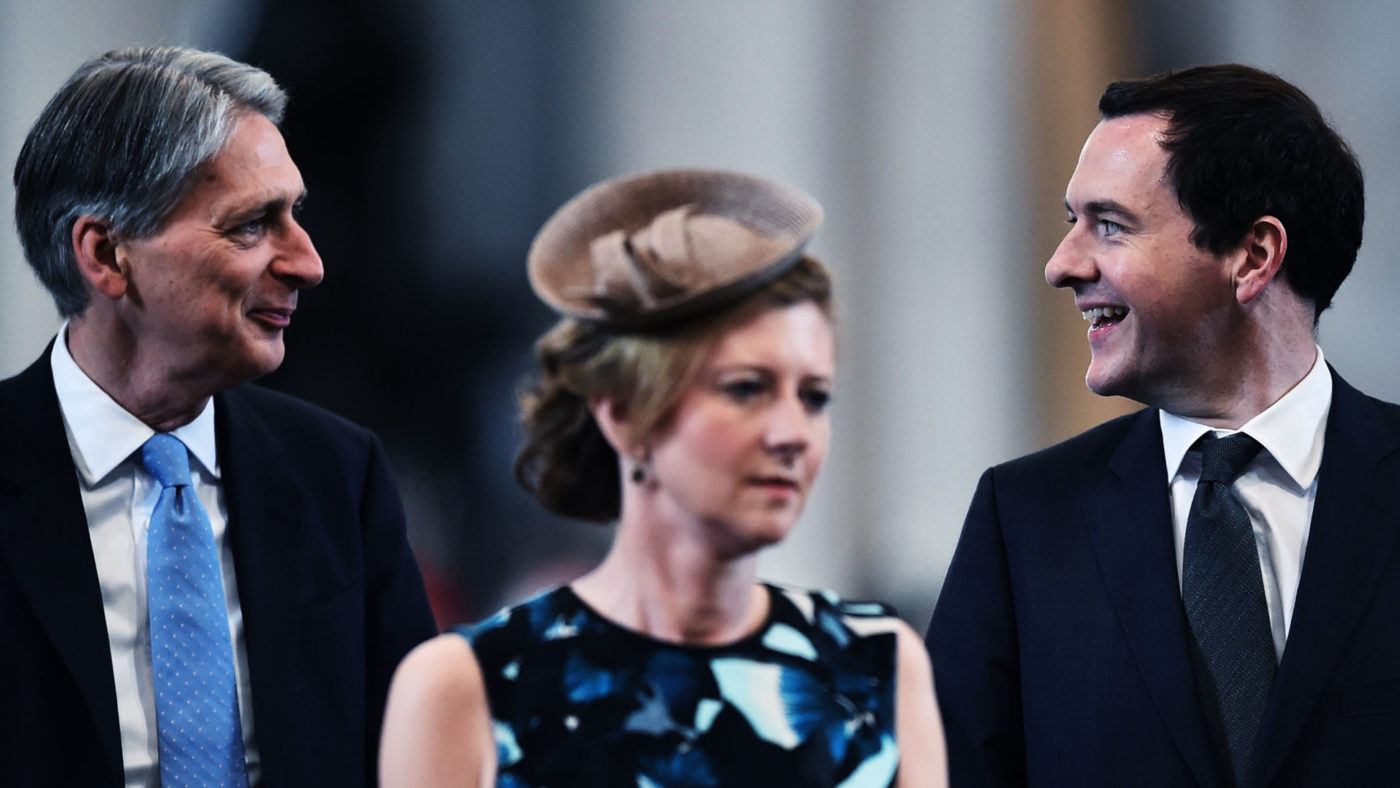Even Philip Hammond’s hair is more plausible than his predecessor’s. The present Chancellor’s silvery parting speaks not of vanity but of careful preparation, with no hint of deceitful tint.
Likewise his body language has none of the preen and smirk that signalled George Osborne’s political gimmicks and bear-traps. Everything about Hammond says cautious and sensible, and his wit is pleasantly self-deprecating.
What a refreshing change he represents — or so many of us were thinking as he delivered Wednesday’s Budget speech. Right up until the passage about raising National Insurance contributions on the self-employed.
Where on earth did that come from? Was it left on the Treasury speechwriter’s laptop by one of Osborne’s people, in the spiteful hope of tripping Hammond up? It certainly did that, and the closer it is scrutinised the more troublesome it looks.
Self-employment, with its connotations of self-reliance, enterprise and hard work, was and still should be a Thatcherite Tory ideal. The swing to self-employment that followed the financial crisis of 2008, combined with an astonishing rise in registrations of start-up companies, was saluted as evidence of national resilience, resourcefulness and optimism.
Only the Left have ever hated the self-employed. Remember their scorn for the self-employed tanker drivers whose protest brought the country to a halt in 2000? Or the implied sneer in the picture tweeted by Labour’s Emily Thornberry MP of the home of a “white van man” during the 2014 Rochester by-election?
Elsewhere, few have challenged the idea that this new army of micro-entrepreneurs deserves encouragement and praise —and mildly favourable tax treatment in the form of lower NI contributions as compensation for risks such as late payment and for non-entitlement to paid holidays, sick pay, parental leave and workplace pension rights.
But in search of a couple of billion to pay for his Budget offerings towards social care and business rates relief, Hammond has turned all this on its head —reversing a plain manifesto pledge not to increase NI contributions and unleashing a speech passage that was as slippery as anything in the Osborne repertoire.
“I will always encourage and support the entrepreneurs and the innovators who are the lifeblood of our economy,” he declared, before kicking them in the goolies.
Then he called in evidence, Matthew Taylor, the former Labour policy chief who will report in the summer on “the wider implications” of changing patterns of work and employment, but who is already “clear that differences in tax treatment are a key driver behind the trends we are observing”.
By way of illustration:
“An employee earning £32,000 will incur between him and his employer £6,170 of National Insurance Contributions. A self-employed person earning the equivalent amount will pay just £2,300 – significantly less than half as much.”
Well, yes, Chancellor, but what you didn’t make explicit there is that what’s missing, in the latter case, is the entirety of the employer’s NI contribution. To a very large extent, it’s the employers who have been exploiting the difference in tax treatment: companies such as Deliveroo offer work on a self-employed basis that could otherwise be done by employees. In such cases, workers are effectively forced into self-employment, whether or not it suits their way of life or benefits their pocket; often it does not.
The Taylor report is expected to come down hard on all that. Governments the world over are now searching for ways to apply additional levies on multinational companies that have the multiple advantage of a non-employed workforce, an online customer interface (rather than physical shopfronts that carry hefty local rates) and squadrons of fancy lawyers striving to minimise their tax liabilities wherever they operate.
So why not wait until after the summer — for the November Budget that Hammond says will henceforth be only one that matters — and seek to address the bigger issue of which the surge in self-employment is both a feature a symptom?
The first 1 per cent increase in Class 4 NI contributions doesn’t take effect until April 2018, in any case, so even if the Chancellor insists on carrying it through he could have made it part of a wider package that addresses the changing world of work in all its aspects.
Instead he favoured employers by reconfirming his intention to cut corporation tax to 17 per cent by 2020, while stinging small entrepreneurs a second time by reducing their tax-free dividend allowance.
Where’s the fairness in that? Aha, says the Chancellor, but “dramatically different treatment of two people earning essentially the same undermines the fairness of the tax system. Employed and self-employed alike use our public services in the same way, but they are not paying for them in the same way.”
What specious nonsense. NI charged as a percentage of income is, as every schoolboy knows, no more than an additional layer of income tax: it is not a direct charge for use of public services.
How often any citizen uses the NHS or the local library is never a factor in how much tax they pay. And an income generated by risk-taking and creativity, with little or no safety net, does not, as a matter of “fairness”, have to be taxed in exactly the same way as an income derived from highly protected employment.
If Chancellor Hammond did not consider these arguments when forming his Budget, he deserves all the flak he is currently receiving from his own backbenchers and more besides.
If he considered them, set them aside, and chose to bluster through with false talk of “fairness” simply to cover the cost of a handful of eyecatching giveaways, then despite his steady style and careful coiffure, he is more truly George Osborne’s successor than we ever imagined.


